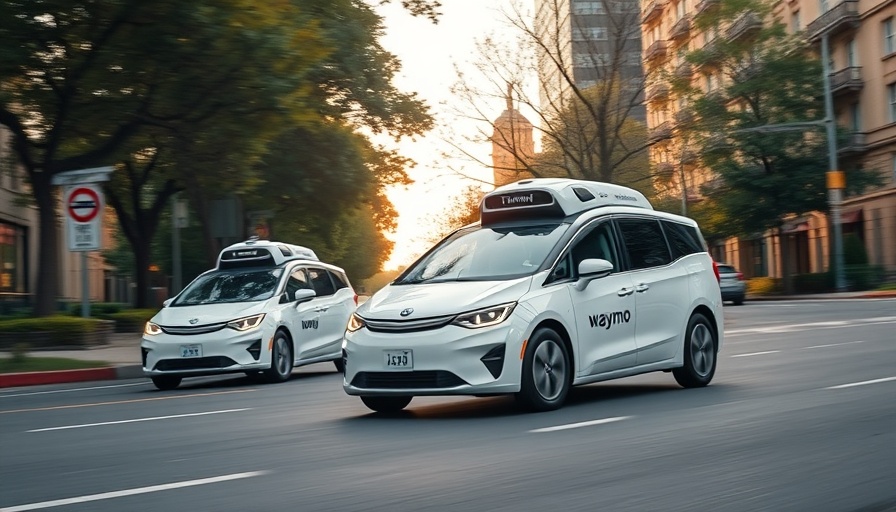
Waymo Begins Self-Driving Testing in San Antonio: What It Means for the Future
San Antonio is gearing up for a significant technological shift as Waymo, the pioneering self-driving taxi company, initiates its test operations in the City. With plans to familiarize its fleet of autonomous vehicles with local roads, residents may soon become acquainted with the idea of self-driving taxis. However, don’t expect to jump into one just yet, as these vehicles will be manned by trained operators for the testing phase.
The Role of San Antonio in Autonomous Vehicle Development
Waymo’s presence represents the initial stage in a broader process aimed at integrating autonomous transport within the fabric of San Antonio. As stated by City Manager Erik Walsh, this phase will focus primarily on areas within Loop 410, which could potentially evolve into a more extensive network of autonomous ride-sharing services as testing concludes successfully. Understanding how these vehicles operate in diverse conditions will play a crucial role in their future deployment.
Transformation of Urban Mobility: Future Predictions for San Antonio
The impact of Waymo’s technology on urban transportation in San Antonio could be profound. Experts predict that as self-driving taxis become more prevalent, they will improve urban mobility by reducing traffic congestion, lowering emissions, and providing a new and efficient means of transport. Cities like Phoenix and San Francisco are already witnessing the benefits of these transformative technologies, paving the way for San Antonio to adopt a similar model.
What Residents Should Know About Waymo's Testing
While residents won't be able to book a ride just yet, the testing phase will allow Waymo to gather critical data on how their vehicles interact with local traffic systems and street layouts. This process might also help address any concerns that residents may have regarding safety and reliability. In an increasingly tech-driven world, understanding and supporting the evolution of local transportation methods will be crucial.
Potential Concerns: Safety and Job Impact
As with any significant technological advancement, the introduction of self-driving taxis raises important questions regarding safety, potential job losses, and regulatory landscapes. Communities may be concerned about the safety protocols in place and how the shift towards autonomous driving could impact employment within the local transportation sector. Advocates and skeptics alike will need to engage in a robust dialogue to navigate these changes responsibly.
Waymo's Wider Impact on Texas and Beyond
The expansion of Waymo’s operations in Texas—covering cities like Dallas and Houston—could position the state at the forefront of the autonomous vehicle industry. With Austin already a testing ground for self-driving technologies, Texas stands to become a model for other states navigating the complexities of autonomous urban transportation. As companies like Waymo continue to innovate, they inspire a shift in public transportation paradigms across the nation.
Taking Action: How Citizens Can Engage with Future Developments
Residents of San Antonio are encouraged to stay informed about forthcoming developments regarding autonomous vehicles. Participation in community forums, city meetings, and discussions around transportation safety initiatives can ensure that local voices are heard as this technology unfolds. Engaging with city council members about infrastructure needs and public safety measures related to self-driving taxis could foster a smoother transition into this new era.
As Waymo’s self-driving taxis start roaming the streets of San Antonio, it's important for residents to approach this exciting change with curiosity and caution. Start getting involved now by asking questions and voicing concerns to local officials, ensuring that the future of transportation benefits everyone in the Alamo City.
 Add Element
Add Element  Add Row
Add Row 



 Add Row
Add Row  Add
Add 


Write A Comment